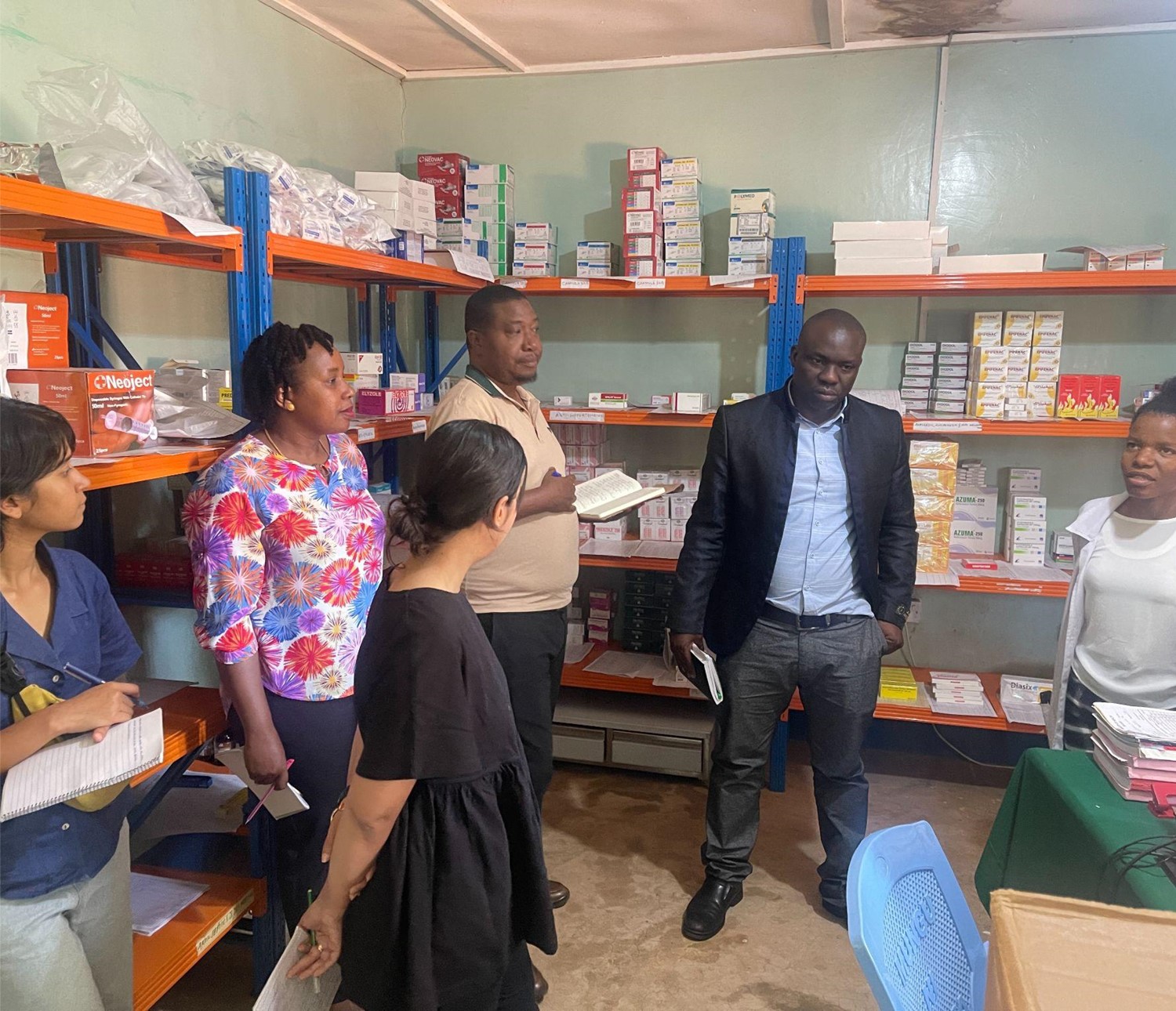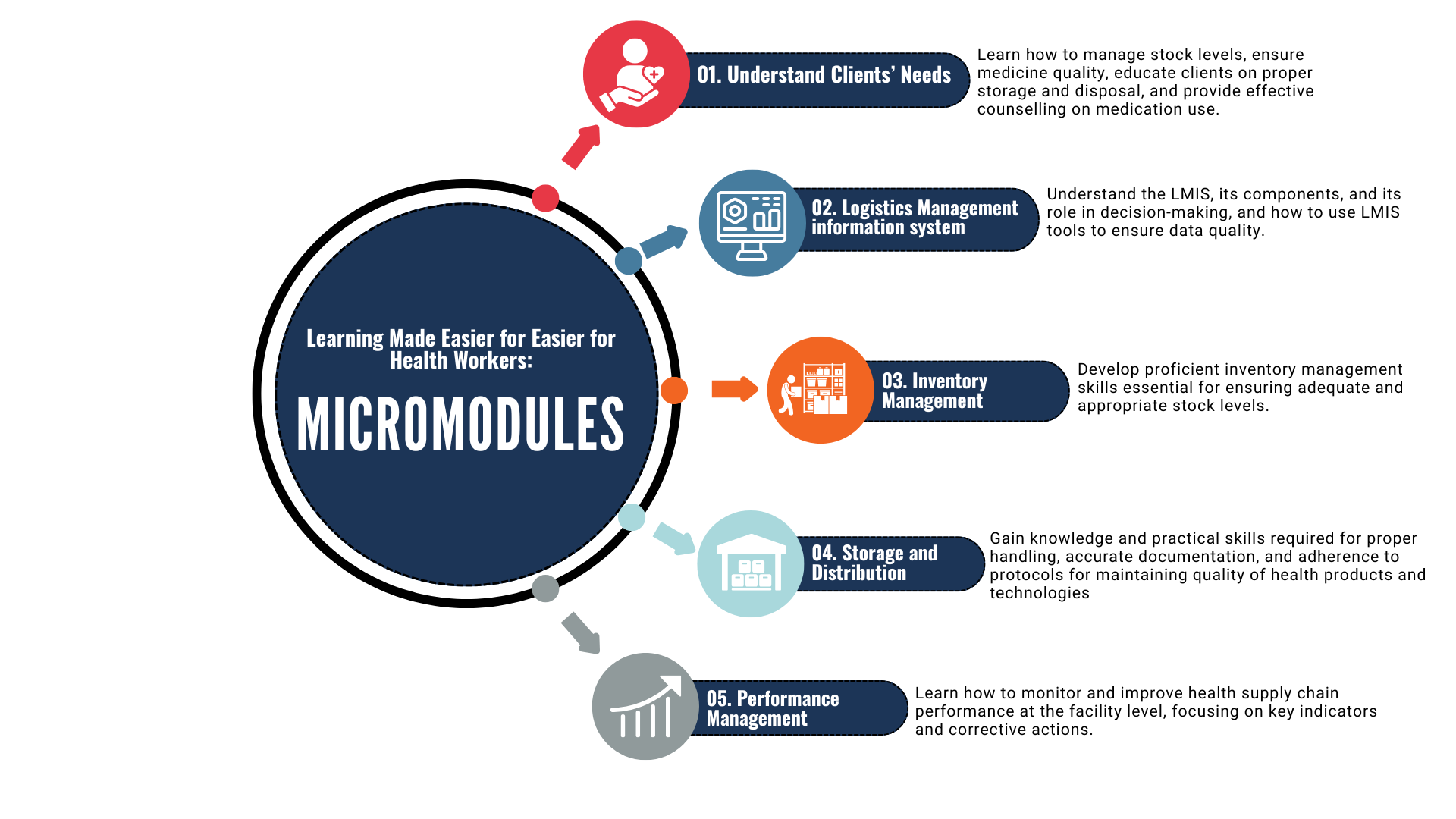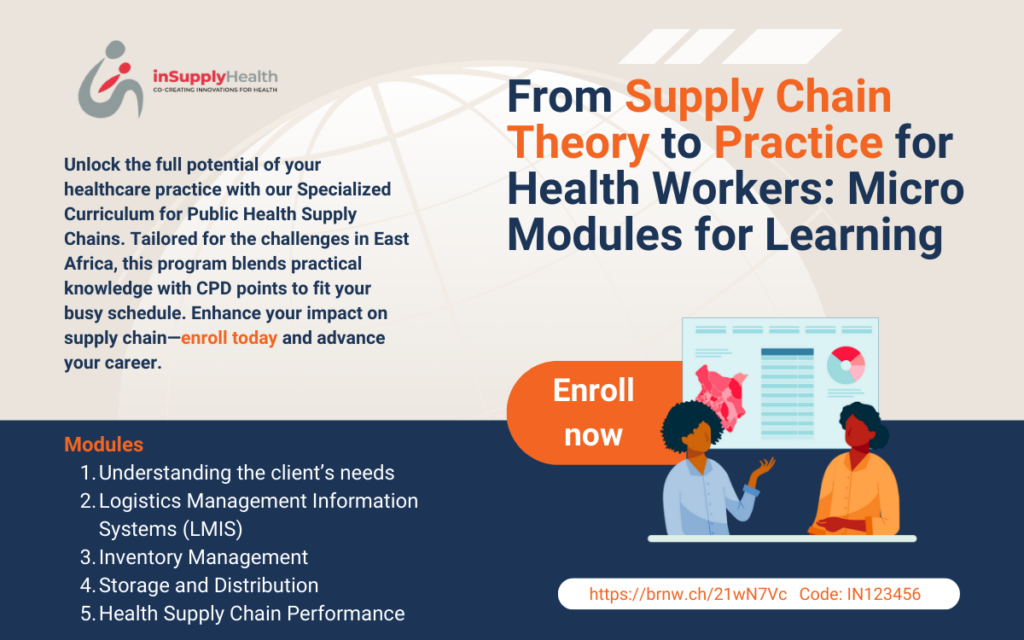Health workers across various levels of the health systems in Kenya and Tanzania face significant challenges in managing health supply chains. Limited technical and managerial expertise, often due to inadequate pre-service training, is a major barrier. Additionally, task-shifting forces health workers to juggle supply chain roles alongside their primary responsibilities, often to the detriment of both. The situation is further exacerbated by inefficient tools, such as manual data systems, poor use of inventory methods that lead to stock mismanagement, and chronic underfunding, all of which undermine supply chain efficiency.

Human resource challenges, including low motivation, inconsistent incentives, and scarce professional development opportunities, impede workforce performance, while the lack of emergency supply chain protocols leaves health systems unprepared for crises. These human resource challenges are largely due to limited training opportunities and complex job demands that go unaddressed in formal education. This issue directly impacts the efficiency of health services in Kenya and Tanzania, where supply chain management competencies are often absent in health worker pre-service training. Where supply chain management competencies are frequently missing from pre-service training for health workers. Without these critical skills and competencies, the availability and accessibility of essential medical supplies are compromised, affecting health delivery outcomes.
Recognizing the urgent need for upskilling, inSupply Health, in collaboration with the Ministries of Health in Kenya and Tanzania, initiated a transformative workforce development project to bridge these gaps, by using a human-centred approach to training, focusing on tailoring solutions to the unique needs and realities faced by health workers on the ground.
By prioritizing practical, context-specific learning, this innovation democratizes supply chain management skills and competencies, empowering health workers to navigate complex supply chain challenges effectively.
Understanding the Challenges: The Need for Supply Chain Skills
Supply chain responsibilities are frequently overlooked in health worker training and job descriptions, with competencies like logistics management and inventory control typically excluded from pre-service education in Kenya and Tanzania. As health systems increasingly involve task shifting where workers assume additional responsibilities, it becomes evident that supply chain training is essential for effective role management. However, consistent contextualized targeted training and supervision resources are limited, resulting in skill gaps that impact healthcare delivery.
The Human-Centered Approach
To address these issues, inSupply Health adopted a human-centred design (HCD) approach, gathering direct feedback from Kenyan and Tanzanian health professionals to identify pain points and build effective, user-friendly solutions. Through interviews, field observations, and ideation workshops, they developed interventions aligned with real-world needs. Instead of relying on lengthy, traditional training methods, the team introduced “micro-learning” modules, short, focused lessons that health workers can complete in under 20 minutes. This flexible approach, which is specific to their roles and responsibilities, helps health workers integrate training into their schedules, keeping skills and knowledge current.
Micro-Learning: A Key Innovation
A standout solution from this initiative is micro-learning, which breaks down complex concepts into bite-sized, brief, targeted modules that health workers can access even with busy schedules. Each micromodule, no longer than 20 minutes, covers essential skills like inventory management, logistics, and data analysis. This format allows health workers to learn at their own pace and immediately apply their new skills in the workplace.
Curriculum Development and Integration
inSupply Health worked closely with the Ministries of Health to align micro-learning modules with national health curriculums. The content, co-developed with subject matter experts, went through testing and feedback loops, including beta tests with health workers. Modules are hosted on online learning management systems, providing health workers with convenient access and the opportunity to earn Continuing Professional Development (CPD) points upon completion.

Building Toward a Resilient Health System
This initiative aims to reach 1,500 health workers in Kenya and Tanzania in its first year, strengthening both individual competencies and the broader health system. Health workers who complete the modules receive e-Certificates, enhancing their professional profiles and promoting continued learning. These modules are part of a larger movement toward Universal Health Coverage (UHC), ensuring a well-managed supply chain that supports better health outcomes.
The Future of Health Supply Chain Training
inSupply Health’s approach represents a significant step in democratizing supply chain competencies in East Africa. Through HCD and micro-learning, they set a precedent for adaptable, accessible, and impactful training one that could serve as a model for other regions facing similar challenges. With a commitment to continuous improvement, collaborative design, and innovative solutions, inSupply Health is creating a resilient health workforce equipped to meet the demands of evolving supply chain needs of the health system.

Enroll here and use the Code: IN123456


